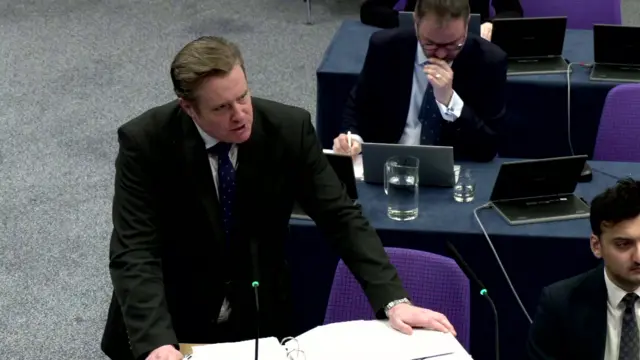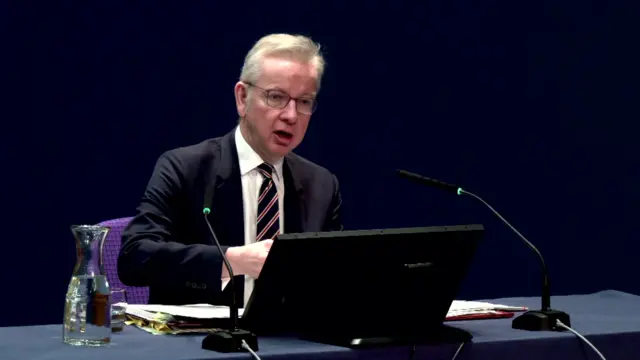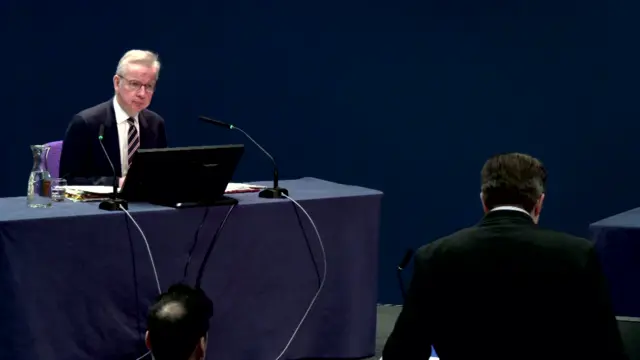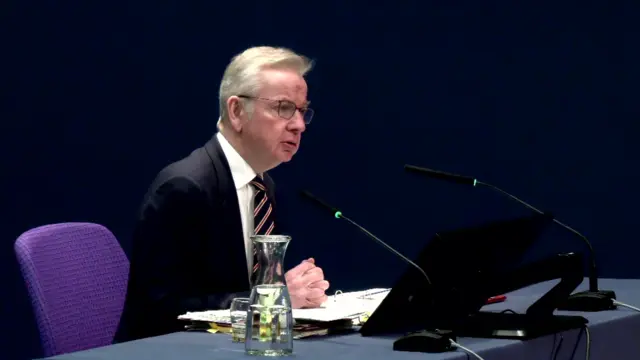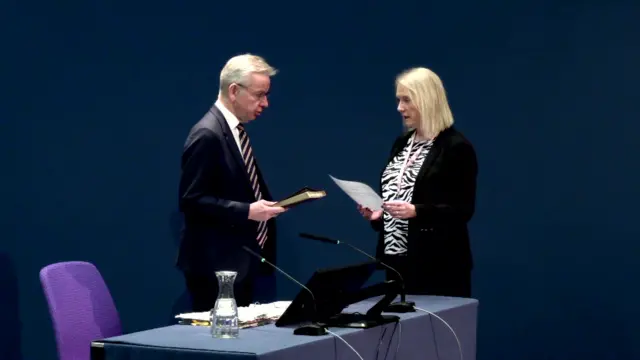'Personalities do matter in politics'published at 11:26 GMT 29 January 2024
Dawson recalls comments made by former deputy first minister, John Swinney, in his evidence last week that described relationships at the start of the pandemic as "pretty poor".
Gove says he does not agree with Swinney's assessment, denying that relationships between the governments were poor due to "divergent political views on Brexit.
He says that once again, he appreciated the professionalism of Scottish ministers, even when facing a possible no-deal Brexit which they did not want. He says "personalities do matter" in politics.
Gove says there were people in the Scottish government who were more constructive than others - of whom MSP Kate Forbes was one.


